Rachel Neumeier's Blog, page 106
April 7, 2022
Integrating Flashbacks into Your Story
Here’s a post from Jane Friedman’s blog: Weaving Flashbacks Seamlessly into Story
That caught my eye because of the way I put flashbacks into Suelen’s story. I fundamentally do appreciate brief flashbacks that are integrated with the story present; the kind that maybe take up a paragraph or two, sometimes only a sentence or two. I use very brief flashbacks like that on occasion, although I don’t think I do it very often. I believe I more often have the protagonist think, in story present, about past events. I think that’s easier to integrate into the story.
But in Suelen, there are two important flashback scenes. In this particular story, I didn’t integrate the flashbacks seamlessly; I set them off with chapter breaks. There are two. Both are relatively extended. Both take place at the same time, the day before Suelen crosses the river. One covers part of his interview with Aras and the second covers another part of that same interview. Let me see if the linked post has something to say about that …
Ah! It does. This post gives guidelines for integrating flashbacks into story present and then adds that these same techniques can be used even for flashbacks that are set well apart from the main story. What are those guidelines? Here they are in condensed form; I’m paraphrasing and condensing.
— something in story present is directly relevant to and sparks the memory, leading into the flashback.
–general memory of the past leads to concrete details and a specific remembered incident.
–the protagonist returns to story present in some clear way that the reader can’t miss.
–the flashback causes the protagonist to act in story present in some way congruent with that memory.
Okay, yes, provided I’ve accurately summarized this post, I think that’s right. That is what has to happen no matter how the flashback is presented, whether it’s as a paragraph with no line breaks or a chapter set off from the main narrative.
Here’s another post about flashback: What Is a Flashback? Definition and Examples of Flashbacks
Flashbacks can either be quick dips into the past or a larger narrative thread within a story. Taking readers out of the present time to learn about an earlier event can help a writer tell a story in a non-linear style. Approaching short story or novel writing in this way can make the narrative more interesting. Flashbacks have several other important functions in literature. …
Those functions are:
–character development
–adding interest to the plot — I have to say, if your chronological narrative lacks interest, not sure adding flashbacks is going to solve that problem, but whatever.
–increase reader involvement with the protagonist. This seems like part of character development to me.
–explain the current conflict.
That’s all very well — in fact, I think the linked post is good, not least because it offers examples of flashbacks from literature: Heart of Darkness, The Great Gatsby, and Harry Potter.
owling begins her first Harry Potter book just as Harry turns eleven years old. It’s been ten years since Lord Voldemort murdered his parents and Harry was left with his less-than-welcoming relatives, the Dursleys. Rowling uses a series of flashbacks to hint at Harry’s unique abilities by recounting the strange things that happened to him before the story takes place. For example, when Aunt Petunia makes Harry get a haircut, he wakes up the next morning to find his hair has grown back to where it was. Rowling uses these flashbacks to foreshadow what we soon find out—that Harry has inherited wizarding powers from his parents.
That’s using tiny snippets of flashbacks, a good technique.
One more use of flashbacks that isn’t mentioned by either post, but is highly relevant:
–A flashback can be added just because the author enjoys it and expects the reader to enjoy it.
That wasn’t the only reason I put flashbacks in the narrative in Suelen, but it was a biggie.
I could have summarized Suelen’s interaction with Lord Aras. Or I could have started the story there, with that interaction, and then said, “The next morning, Suelen crossed the river.” That would have put all the events in the story in chronological order. Instead, I put that interaction into two chapters, widely separated in the narrative, because I enjoyed writing the story that way and I expect the reader to enjoy those flashbacks. Let me see if I can delineate all my important reasons for structuring the story the way I did. Okay, here:
–It was just fun to show this interaction, in an extended scene and in its own story-present. I enjoy watching Aras be all authoritative. Surely many or most readers will also enjoy that. But besides that:
–I wanted to start with Suelen already across the river, committed to his humanitarian mission, and
–Breaking the story-present narrative increases tension by pausing the scene, particularly the second time, where I pause the action at a high-stress moment.
–Inserting these flashbacks also allows Aras to appear in every book of the Tuyo series, which I specifically want. That alone would have made me put in these flashbacks. In fact, that was probably my first motivation to write the narrative that way. It’s something that helps tie all the books together.
–As it happens, this interaction does deepen characterization — not just for Suelen, which it does a little, but for Aras. We get a tiny glimpse of a private doubt he does not like to discuss. That, by the way, is likely to be something that is built up later, in Tasmakat.
Lots of reasons to use flashbacks, either as tiny snippets scattered unobtrusively through the narrative, but also as scenes in their own right.
I’m going to return to the first linked post to add:
For the love of all things narratively holy, flashbacks aren’t set in italics or a different font.
That made me laugh. Yes, as a general rule, I don’t advise setting flashbacks into italics. Too jarring for little snippets, tiring to read for long sections, and it’s impossible to make the shift in verb tenses and things like that work subtly if you try to throw flashbacks into italics.
Regardless, the linked posts are pretty good; by all means click through if you’ve been thinking about how and why to integrate flashbacks into a story.
Please Feel Free to Share:






The post Integrating Flashbacks into Your Story appeared first on Rachel Neumeier.
April 6, 2022
Recent Reading: Quest for a Maid
I have to say, for a bit there I was thinking, Why why why did you all recommend this short MG/YA story to me? However, whew, everything worked out well in the end, so that was a relief.
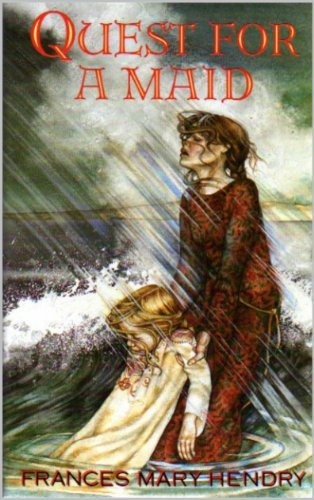
Hendry beautifully evokes the feel of the era. This may be the most successful use of dialect I’ve ever seen. She also captures the attitudes and worldview of people living in this time and place (Scotland in the 13th Century). This is great! I admire her writing very much. However, I have to admit, the back of my mind was frequently occupied with thoughts like, “Thank God this isn’t me. Thank God I didn’t live then.”
Great characterization of Meg, the protagonist; and of the secondary characters. The children act their age — their age in a 13th century world, where a kid can be betrothed at six with the expectation that the marriage will take place when he’s thirteen. I know perfectly well how differently childhood and adulthood were viewed at the time, and it’s still a bit shocking to read about, especially when everybody in the story takes that sort of thing totally for granted. Relationships are drawn subtly; the reader’s going to have to pay attention to realize certain things; but I really appreciated how the relationships worked out in the end.
This is a historical fantasy, not purely historical; it’s written as though the witchcraft that people believed in at the time was entirely real. That’s important to the plot. I would have liked to have a chat with Inge about witchcraft … as long as she didn’t decide she hated me … anyway, I really wondered about witchcraft because she didn’t seem exactly evil. Most of the time. Well, part of the time. Anyway, I wondered.
Hendry has quite a few other books available, I notice. I anybody’s read those, what did you think?
Please Feel Free to Share:






The post Recent Reading: Quest for a Maid appeared first on Rachel Neumeier.
April 5, 2022
Predatory contracts
Here’s a sad anecdote about a woman who got taken in by a scam vanity press that’s worse than most: the contract requires her to buy a certain number of her own books every month. I’ve never previously heard of that.
But this reminded me of the worst contract I’ve ever heard of, which in fact was just this morning.
I saw a reference on Quora and looked it up, and here’s the Writer Beware post on this particular predatory … that isn’t a strong enough term … this vicious contract from an outfit called GoodNovel:
– The rights grab extends not just to related works, but, potentially, to all future work.

Taken literally, which contracts generally are, this requires the writer to submit anything they ever write to GoodNovel, forever.
And … I don’t even know what to say about this.
Except: if you’re thinking of signing a contract, read it first.
Real takeaway from this contract: Wow, I can’t believe contracts can even be this terrible. I wonder if a lawyer could break a person out of it and how much that would cost. Honestly, this kind of contract should just be illegal in the first place.
Please Feel Free to Share:






The post Predatory contracts appeared first on Rachel Neumeier.
Living Wills for a Zombie Apocalypse:
From tor.com, this:
As a fan of fantasy and horror, you probably believe that you would survive should any of the nightmare scenarios you read about—zombie plagues, invading demons, vampire boyfriends—come to pass. Why, with your knowledge, you should be the hero of such a story!
But what if it doesn’t work out that way? What if you are bitten or possessed? How can you be sure to receive the care you want? While there are many guides available for creating advance directives (or living wills) in the case of natural illness or incapacitation, this guide will prepare you to address the most common preternatural threats and reclaim what control you have in a chaotic world. In each case, you may select from the options given or write in your own choices. May this be useful in making your decisions known should the worst come to pass.
I have to say, I was certainly smiling by this point. Okay, sure, let’s see what clauses the thoughtful pessimist might include in a will in case of a zombie apocalypse …
Section I: Choosing your proxyYour proxy is the individual authorized to make important decisions on your behalf should you be unable to do so. This should be someone who knows you well, whom you would trust with your life, and who fears neither the dark corners of the world nor the unnamed terrors that dwell therein. This individual should have the mental and physical strength to kill you if need arises, with access to appropriate weaponry, like silver bullets, consecrated swords, or a pump-action shotgun. Your proxy should create their own advance directive as well.
My reaction: if you have a friend like that, maybe you won’t need a living will. Sounds like a great person to team up with: they can be the hero of the story and you can be a secondary character (the kind who is too important to be killed, preferably).
Many good tidbits in the ensuing post. Here’s one of my favorites:
In the case of supernatural madness, I choose that journals documenting my ramblings, as well as any unusual, ancient, or ineffably ugly artifacts found in my effects, be:
destroyed.boxed and sent to my next of kin.other — specify:As you can see, many of the options provided in this possible living will encourage a sequel.
I guess in the Black Dog world, legal provisions like this might actually be sensible….
Please Feel Free to Share:






The post Living Wills for a Zombie Apocalypse: appeared first on Rachel Neumeier.
April 4, 2022
Worlds to Visit
Okay, so, we all probably need a vacation from the real world, yes? Let’s say a pleasant two-week or month-long vacation somewhere that would be fun and relaxing. Where would you like to go? Let’s stipulate that you can visit after any horrifying Dark Lord has been defeated, or after any potentially world-destroying crisis has been averted. Below are five worlds that I think would be a pleasure to visit.
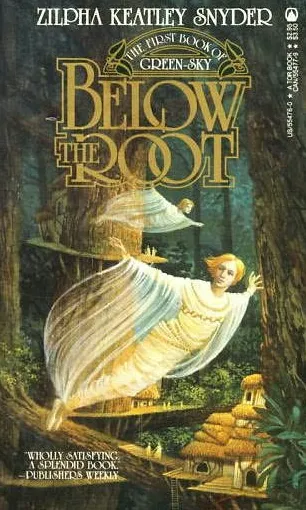
I mean, just look at that cover! You don’t have to read the story to know how delightful a visit would be. I mean, as long as you’re not afraid of heights. That would not be a great phobia here. But it’s not only the gliding, fun though that would be. This also is a charming, low-key, pastoral society, with lots of social emphasis on courtesy and pacifism. It would be a great place for a retreat, for recuperation, for a peaceful vacation away from real-world troubles.
A commenter mentioned Muina in this context, but the fact is, I would kind of like to visit Tare as well as Muina. Given the relative ease of traveling between the two worlds, there’s no reason a vacation package couldn’t include both. Even though I’m not into urban living as a thing, I would like to visit Tare, which sounds pretty amazing for a totally urban planet. I’d like a window in my apartment so I could admire those storms. Then, back to Muina. I want to visit the place with the giant trees, and definitely the place with the rivers that have been redesigned into an artistic presentation. Also, while there, I’d definitely schedule time for “skin treatment” or whatever term is applied to the anti-aging treatment.
Any sightings of psychic space ninjas would be icing on the cake.
If I turned out to be a touchstone, as unlikely as that is, I would carefully not mention it to anyone. At least not unless I had already decided I’d want to spend the rest of my life there.
I have to say, I’d also bring some of my spaniels. Those feral “border collies” are going to be terrible, terrible pets for most people; much too high-drive and demanding. I feel bad that the Muinans don’t have a more suitable type of dog for companionship. Cavaliers would fill that niche admirably.
Most fantasy worlds would arguably make terrible vacation spots. Even if the Dark Lord isn’t trying to enslave everyone, for a plethora of reasons, they just aren’t that nice as places to live. This world is different. I’ve said before that the society here, the one with the Elemental Blessings, is currently experiencing a kinder, gentler industrial revolution. That’s exciting and adds to the comfort level of living here. There’s just a nice aura here too, as one can see by the way that all the Elemental Blessings are in fact blessings — no curses built into the metaphysics of this world. That’s one reason these novels were instant comfort reads for me.
In this particular case, I have a very specific destination in mind. I really want to visit Wizard Derk and his family. I love, love, love the griffins in this family. There are neat dragons in this world too, and I don’t think those dragons would be particularly dangerous to visit as long as Derk or one of his children introduced you.
As long as no huge empire is trying to invade … and as long as the islands aren’t sinking toward the sea … then it’s hard to imagine a better vacation spot. Seriously.
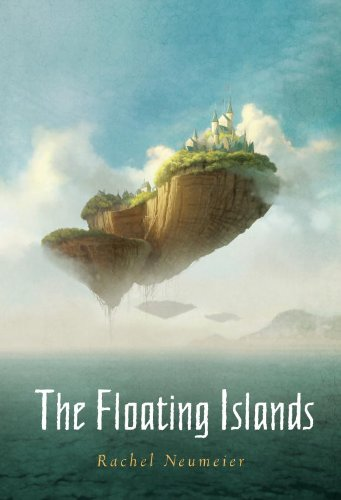
Beautiful setting, flying people to admire as they soar overhead — or below a balcony, perhaps — plus a culture that emphasizes the arts including the culinary arts … I mean, even if most people can’t really see the dragons that may be around, still, sign me up!
What’s a world you’d particularly like to visit?
Please Feel Free to Share:






The post Worlds to Visit appeared first on Rachel Neumeier.
April 1, 2022
Progress Report: A Slow Couple of Weeks
Okay, so, it was entirely justifiable to take a week off after Keya started having cluster seizures. I feel perfectly fine about doing that.
She’s doing well — the only drug she’s on now is Phenobarb and that seems to be enough to keep the seizures from returning (knock on wood!). She’s adjusted to it much (MUCH) faster than Pippa did, probably because she is, after all, two years younger. This past Monday I put away the x-pen because I decided she could handle the furniture. Yesterday I let her go down stairs by herself for the first time since all this started. Her feet do sometimes slide out from under her on tile, but even that is much better than it was. That’s great because even though she theoretically weighs less than Pippa, Keya is an amazingly solid chunk of a dog and I’m not keen on heaving her around if she can handle stairs on her own.
So that’s all great!
But I was perfectly aware that losing momentum is never great; that picking a project back up after coming to a full stop is hard. That’s exactly why I hadn’t stopped for a break yet this year.
Rather than picking Invictus back up, I’ve taken this week to slowly proofread Shines Now and Suelen in paper format and make corrections and various tiny adjustments. That’s mostly finished. I sent Shines Now to my final proofreader (Hi, Linda!) and I’ll send her Suelen probably on Monday. Since Shines Now will be released May 21 and I’ll set Suelen to release probably a month later — provided the cover is ready, and it should be — there’s plenty of time for final proofreading.
So this needed to be done and it was nice to have a quiet week, but it would be nice to pick Invictus back up , revise these last few scenes that require revision, move ahead with the story and get it finished. Since I’ve lost momentum and have no enthusiasm for this project at the moment, how’s that going to work?
How to regain momentum (or move ahead without momentum):
For me, momentum arises from living in the world I’m writing, so to speak. It means that I’m thinking about scenes I just wrote or upcoming scenes a lot, pretty much all the time when I’m not doing something else. This creates enthusiasm to write the upcoming scenes and also helps pull later scenes into focus. As I’ve probably mentioned from time to time, I often don’t know the ending until I get pretty close to it. I don’t know whether I’ve mentioned this, but all sorts of important details fall into place because I have momentum and I’m therefore thinking about the book a lot (eg, “living in the world of the story”). I suppose all this is a lot like saying writing with flow, but I think of flow as something that happens while hitting the keys of the laptop, while momentum is something that keeps me coming back to the laptop with enthusiasm. Lacking momentum is therefore not a good thing.
I’ve been here before! (Oh yes, have I ever been here before. I’ve written entire books without ever gaining real momentum. (They were under deadline; I didn’t have any choice.))
So, after a project grinds to a halt, for whatever reason that might have happened, I find that what works for me to get it moving again is simply to set a minimum word count and stick to it. This is where I actually start list the day and the wordcount achieved and stick to the set minimum unless derailed by a real emergency. Depending on what else is going on, I may set a daily requirement of 1000 words, or 1500, or 3000. It doesn’t matter. Once I start moving forward, I ought to be able to complete the novel in a reasonable amount of time.
In this case, I have about 40 pages that still need revision. For me, revision is seldom (or never) as hard as moving forward, plus I have detailed, exact notes about what needs to happen in the next couple of scenes. I should therefore be able to get through this remaining revision this weekend. Unless anything dire happens, I should therefore be moving ahead with Invictus by Monday. Or sometime next week anyway. Then I will start a daily minimum — 1500 words sounds good to begin with — and see how it goes.
I don’t really think this story is cursed. Not really. Probably not. But if something else happens next week just after I start moving forward, I may change my mind about that.
Please Feel Free to Share:






The post Progress Report: A Slow Couple of Weeks appeared first on Rachel Neumeier.
Mistakes with Setting
Via The Passive Voice blog, from Writers Helping Writers, this post: Setting Description Mistakes that Weaken a Story
I would — and do, and have — argued that the most fundamental job of the novel opening is to establish the protagonist and place the protagonist in the world. In other words, the opening needs to focus on the protagonist and the setting before anything else. I’m therefore immediately on board with the basic idea of this post, although I notice — belatedly — that this post is not necessarily going to focus on the opening of a novel. Quite possibly the focus will be on problems with setting and worldbuilding that appear as the novel unfolds.
The setting tied to each scene carries a lot of storytelling weight because it had the power to touch and amplify anything to do with characters, events, and emotion. Used correctly, a location can characterize the story’s cast, steer the plot, evoke emotions and mood, create windows to allow for active backstory sharing, provide conflict and challenges, and act as a mirror for what the protagonist needs most, reinforcing his motivation at every step.
So, setting throughout. That’s fair. Not sure what’s meant by “characterize the story’s cast.” Perhaps that idea might be better expressed as: the reactions of the characters to the setting is never neutral; their reactions are part of characterization. That is, imagine a historical romance set in Big Sky country:

Does the protagonist perceive this setting as awe-inspiring? Bleak? Lonely? Frightening? Freeing? The protagonist’s backstory is going to influence their perceptions. Also, how about the other characters? These reactions aren’t relevant solely to immediate characterization; they can be part of important character arcs. Does one character express joy at the openness and freedom of this setting, thus influencing a more timid character to move toward a better sense of freedom herself?
Also, yes, tidbits of backstory can be worked into the description of the setting, and the setting does certainly evoke a mood, or ought to, and so on. So, this post is about mistakes. Let’s see what those might be:
1) Treating The Setting Like Stage Dressing. By this, the article mainly means using too little description; leaving the setting flat; failing to give the reader enough of a picture of the setting so that the reader can’t feel drawn into the world.
2) Focusing On Only One Sense. That’s clear. People are so visually oriented that I’m sure it’s possible to forget to describe details that are perceived by other sensory modalities.
3) Over-Describing Or Describing The Wrong Things. I see comments about this sometimes; that the author is lingering too much on unimportant details and the story bogs down. I’m not sure I can think of obvious examples off the top of my head.
I guess for me, more typically I fail to describe something that’s important a few paragraphs or pages later and therefore I have to go back and describe whatever that was. In Tarashana, for example, in that duel that occurs close to the end, various details of the sky and the physical setting are important and I very specifically went back to add enough details in the paragraphs that lead up to that duel so that those elements wouldn’t occur out of nothing.
4) Not taking Advantage of POV & Emotion Filters. Yes, this is a biggie. This post does a good job here:
Another [error] that can water down the effect of setting description is a very distanced narrative where every detail is explained, rather than shown through the emotional filter of the POV character. A character who is anxious is going to view the sights, sounds, smells, tastes, and textures of any given setting differently than a character who is excited, or disappointed, or even filled with gratitude.
Right. That’s crucial, especially with a first-person or close third-person narrative. Though really, it’s important with every kind of narrative. Failing to tie the description to the character is going to give an overly intellectual feel to the narrative, pushing the reader away from an emotional connection with the protagonist or other viewpoint characters.
5) Choosing A Setting That Is Convenient Rather Than Meaningful. I don’t think that’s very likely to be a problem in SFF. Anybody writing fantasy or science fiction is going to be thinking a lot about setting as part of worldbuilding. I think that’s true for individual scenes as well as the broader setting.
One more comment:
I realized ages ago that when I read fantasy or SF, characterization is the element that matters most to me. But when I read mysteries or historicals, setting comes to the foreground and both characterization and setting matter most to me. nk this is because a more distant or unfamiliar setting makes the story seem more like fantasy to me, which I like. Regardless of the reason, I’m far, far more interested in mysteries with interesting or intriguing settings, and also vastly more drawn toward historicals with much more distant settings. Anything set in, oh, the Roaring Twenties, no matter how good the story may be, is not going to appeal to me as much as an equally good story set in, say, Classical Greece.
Okay! What is ONE novel with a setting that particularly appeals to you? Bonus if it’s something I haven’t read. Wait, let me correct that: Bonus if it’s a basically happy story that I haven’t read. I hardly know what to mention myself, since after all I comment about books I’ve read all the time and saying Oooh, The Hands of the Emperor! would be pretty repetitive, though the settings in that one are great. Let me think.
Oh, here we go, how about this one. I know I definitely haven’t mentioned it here for a long time, if ever:
Below the Root and And All Between by Zylpha Keatley Snyder. There’s a third book, also shown at the link, but I didn’t read it myself until much later because the library only had the first two. Perhaps for that reason, the first two stand out clearly in my memory, while I don’t recall the third well at all. Fortunately there’s a clear resolution at the end of the second book, so I wasn’t left hanging when I first read these stories.
Regardless, these books definitely offer a lovely setting, evoked here by the original cover:

I loved this setting so much! It’s right up there for Lovely Fantasy Worlds I Want To Visit. The stories are charming too. I mean, there are problems, but obviously these problems are overcome. I would say these probably count as happy stories, at least by the end.
Please Feel Free to Share:






The post Mistakes with Setting appeared first on Rachel Neumeier.
March 31, 2022
Oh, Look, a Book By Someone I know
This startled me: The Big Idea: Kenneth Hite at John Scalzi’s blog. I’m not sure why I happened to look in at Scalzi’s blog … oh, yes I know why: it’s because I’m setting up blog posts for the end of April, when I expect to be busy and probably away from the computer for a week or so. Therefore I was looking around for stuff to write blog posts about, and here we are.
Location is everything — or, if not everything, then still quite a lot, especially when considering the work of foundational fantasist H.P. Lovecraft. For Tour de Lovecraft: The Destinations, master games writer Kenneth Hite gets out the map and takes us traveling, from Arkham to Innsmouth, in pursuit of terror and tourism.
I know Ken because (a) he’s a friend of my brother’s, and (b) he does this podcast called Ken and Robin Talk About Stuff which I sometimes listen to. I haven’t listened to any podcasts for a while, which is probably why I had no idea this book was even in the works, much less out. Oh, I see it’s not quite out: it comes out in a few weeks.
The podcast is good, by the way, all about weird stuff. Some emphasis on gaming — I mean role-playing gaming — but that does segue into relevance to me because Ken and Robin think of gaming as storytelling. Largely, though, I just like hearing about the weird stuff. Also, through some strange magic, the advertisements on their podcast never get painful to listen to. That’s a unique feature as far as I know, as all other advertisements on all other podcasts develop a fingernails-on-a-chalkboard quality over time. I guess I should download a couple of newer episodes onto my phone, but right now I’m listening to The Goblin Emperor in audiobook form, having realized I could pick it up for $8 because I have the ebook, and therefore I doubt I’ll pause that to listen to any podcast for a while.
Anyway! I’m not a bit interested in Lovecraft. Horror isn’t generally my thing, especially if any important characters die; a descent into madness is ABSOLUTELY not my thing under almost any circumstances; and Lovecraftian horror is therefore right out. But it was still very neat to stumble across this post.
In the linked post, Ken says:
I found it very odd that almost nobody (with the very occasional exception from the great Lovecraftians Peter Cannon and Steven Mariconda) had ever approached Lovecraft’s settings from a literary direction. We have plenty of speculation on the question “Where is Arkham?” for example, but almost nothing on the question “What is Arkham?” What did Lovecraft mean by a city simultaneously full of “witch-haunted” gambrel roofs and a “lovely vista of … white Georgian steeples”?
Once more I turned to Northrop Frye, and his discussion of the symbolic double-city in Western literature, backstopped by Lovecraftian scholar Robert Waugh, who wrote the definitive monograph on the topic. My Big Idea was to turn Frye toward Lovecraft, and to expand Waugh from the city to specific cities – and to the Swamp, and the Moon, and Arabia, and the Apocalypse.
I always intended the series to begin, like Dante, in The Woods and end, also like Dante, in Providence. I got through about a dozen of my “Lost in Lovecraft” pieces (Air Supply as cosmic horror: discuss) before, Lovecraftian creature that it was, Weird Tales sublimed and died once more. But I still wanted to finish the journey, and so did my beloved publishers Atomic Overmind, and perhaps most importantly, so did our Kickstarter backers. Vampires and pandemics notwithstanding, we did. Like Randolph Carter, I spent years seeking the “sunset city,” and also like Randolph Carter, all it took at the end was waking up and looking around.
Click through, if you wish, and read the whole thing. And I do recommend the podcast.
Please Feel Free to Share:






The post Oh, Look, a Book By Someone I know appeared first on Rachel Neumeier.
March 29, 2022
Perfect Fantasy Trilogies (Or Series)
Okay, when I posted about perfect SFF and pointed to a bunch of short works, a lot of you started suggesting longer works. Now, the fact is, I think it’s much, much harder to point to a trilogy or series and declare that the work is perfect. Given that much room to stretch out, the chances are enormous that the author will at some point do something that you, the reader, dislike or disagree with.
You’ll sit there fuming:
I can’t believe the author did that.Everything works for me except for this.I had no trouble suspending disbelief until I tripped over this one feature of the worldbuilding.The protagonist seemed generally pretty smart until she did that.The pacing seemed good except the story slowed down and dragged through this section here.In a longer work, it’s rather unlikely that everything will work for a reader. Also, readers won’t agree what feature of the story fails. I mean, in the Tuyo series, I have seen comments from readers who dislike:
The jackal-headed Lakasha-erra.The weird non-realistic astronomical stuff.The situation between Ryo and Darra at the end of TarashanaRyo’s extended recovery after the thing that happens between Ryo and Aras in Tarashana.And so on. All of those things have been particularly picked out by other readers as a feature they especially like. That’s the way it goes with longer, complicated SFF works. This is inevitable, and that is why perfection is much (much) harder to find in long novels, trilogies, and longer series.
But sure! I’m totally up for a challenge! Here is a list of NEARLY perfect longer SFF trilogies (and longer series).
1) Naomi Kritzer’s Freedom’s Gate trilogy:
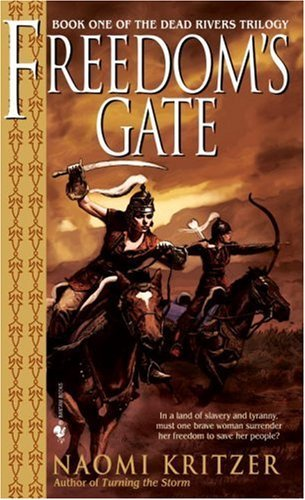
Here’s my review of this trilogy. This comes first on my list because I literally cannot think of anything I would have done differently if I’d written this trilogy. It’s just fantastic. Is it perfect? I don’t know, probably not. Is it nearly perfect? Absolutely.
2) Sherwood Smith’s Inda series:
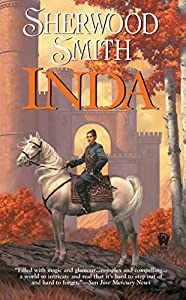
Here are my comments about this series. There are specific worldbuilding details that I found unbelievable, so not as perfect as the series above. On the other hand, Sherwood Smith managed those details in a way that prevented me from pausing to roll my eyes. Anyway, great series.
3) Django Wexler’s Shadow Campaigns series.\

Again, not totally perfect, but wow is this a great series. Here are my comments about the first book. In this case, Janus worked SO PERFECTLY when the reader never got to see his point of view; although I understand why Wexler broke that pattern and gave us scenes from his pov late in the series, I wish he has managed not to do that. I didn’t like how various details of how the overall series worked out, but on the other hand, I didn’t detest anything about the ending. That’s crucial, as obviously a horrible landing will retroactively ruin the whole series. Overall, this is a really great series, even if not totally perfect. With the plus that the first book is entirely self-contained!
4) Kate Elliot’s Spiritwalker trilogy.

This is another trilogy I’m finding hard to critique. It’s cluttered and baroque, a zillion disparate elements, yet the story is overall cohesive, which is quite an accomplishment. Here’s my review of the trilogy.
5) Elizabeth Moon’s Paksenarrion trilogy.
Wow, I don’t like the current cover. Here, try this one instead:

It’s not like the other cover is actually misleading, but this quieter image better suits the feel of the trilogy. I read it a long time ago, so I’ve never reviewed it online. But when I was looking at the fifth spot and thinking hmm, what’s another great fantasy trilogy, this one came to mind. Immediately I thought, Of course! Because actually, this is pretty much a perfect trilogy. The overall arc is clear and smooth from beginning to end; the elements of the story all fit together with neat precision. There are difficult moments … okay, if I think hard I can recall details I don’t particularly care for … but overall, this trilogy is very nicely put together. Elizabeth Moon tends to keep going with series, scattering the pov among tons of pov characters until I lose interest. That happened with her later books set in this world. But this trilogy is great.
That’s five! I’m stopping there. I bet you all have a suggestion for this list, so toss ’em in the comments!
Please Feel Free to Share:






The post Perfect Fantasy Trilogies (Or Series) appeared first on Rachel Neumeier.
Conclusions after Revisiting Andre Norton
Here’s a post by Judith Tarr in which she wraps up her five-year-long project of re-reading everything by Andre Norton:
It’s been a long voyage since the first post in this series. Five years! It’s a tribute to the range and extent of Andre Norton’s work that I’m still here and that you all are still here with me. I haven’t loved every book of hers that I’ve read or reread, but I have loved the journey, and I have even more respect for her now than I did when I began.
It’s been a long time since I re-read anything by Andre Norton. I remember some books quite well — Catseye, for one. I didn’t realize that was the first book of a duology until I just linked to it on Amazon right this minute! Oh, I’m disappointed to see that this is a very loosely related second book rather than a story that continues the first book. Never mind. Anyway, also Beast Master. You know what, I think Andre Norton was probably the author who led me from the animal stories I focused on so much as a younger kid to the fantasy and science fiction I read much more heavily when I was in upper middle school and high school. I never read anything in the Witch World series. Looking back on it, I bet I wasn’t interested because that series didn’t emphasize animals.
After pointing out Norton’s weaknesses, Tarr says:
And yet, what Norton does do, she does as well as anyone out there. She is a master of pacing. Her plots move, and they pull the reader right along with them. She knows how to keep the pages turning.
She builds worlds with a clear and present sense of joy in her own imagination. She loves to fill them with the weird and the wonderful. Whether magical or science-fiction-alien, her worlds are full of flora and fauna both strange and familiar.
She stretches her own talents and her readers’ imaginations by trying to show truly alien minds and thought processes—not all of which inhabit other planets. Humans aren’t the only intelligences in her universes. Some of those are beyond human comprehension. Some are benevolent, some malevolent, and many are simply indifferent.
I was too young to think about, or notice, plotting or pacing. The simple characterization worked for me at the time. And yes, I think her strength with flora and particularly fauna was probably the central aspect of her work that drew me in.
Norton brought so many readers into both science fiction and fantasy. She had a gift for telling a story, and a gift for building strange new worlds, and a gift for opening those worlds to her readers. She came back again and again to a particular kind of character: young, alone, isolated from the world they live in; orphaned or disconnected in some way from their family; thrust into situations they were never trained or prepared for.
They find their way through. They not only survive, they triumph. And in the process, they find family. They’re no longer alone. They’re a part of something bigger than themselves, doing things well worth doing, whether saving the world or making a home for themselves and the hearts’ companions they’ve found along the way. Or, usually, both.
Yes to all that. I think maybe I’ll re-read Catseye tonight.
Please Feel Free to Share:






The post Conclusions after Revisiting Andre Norton appeared first on Rachel Neumeier.



